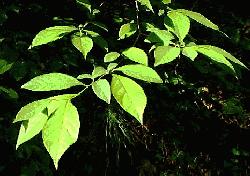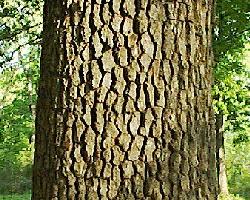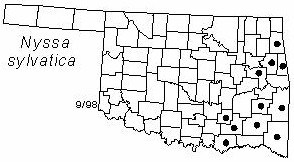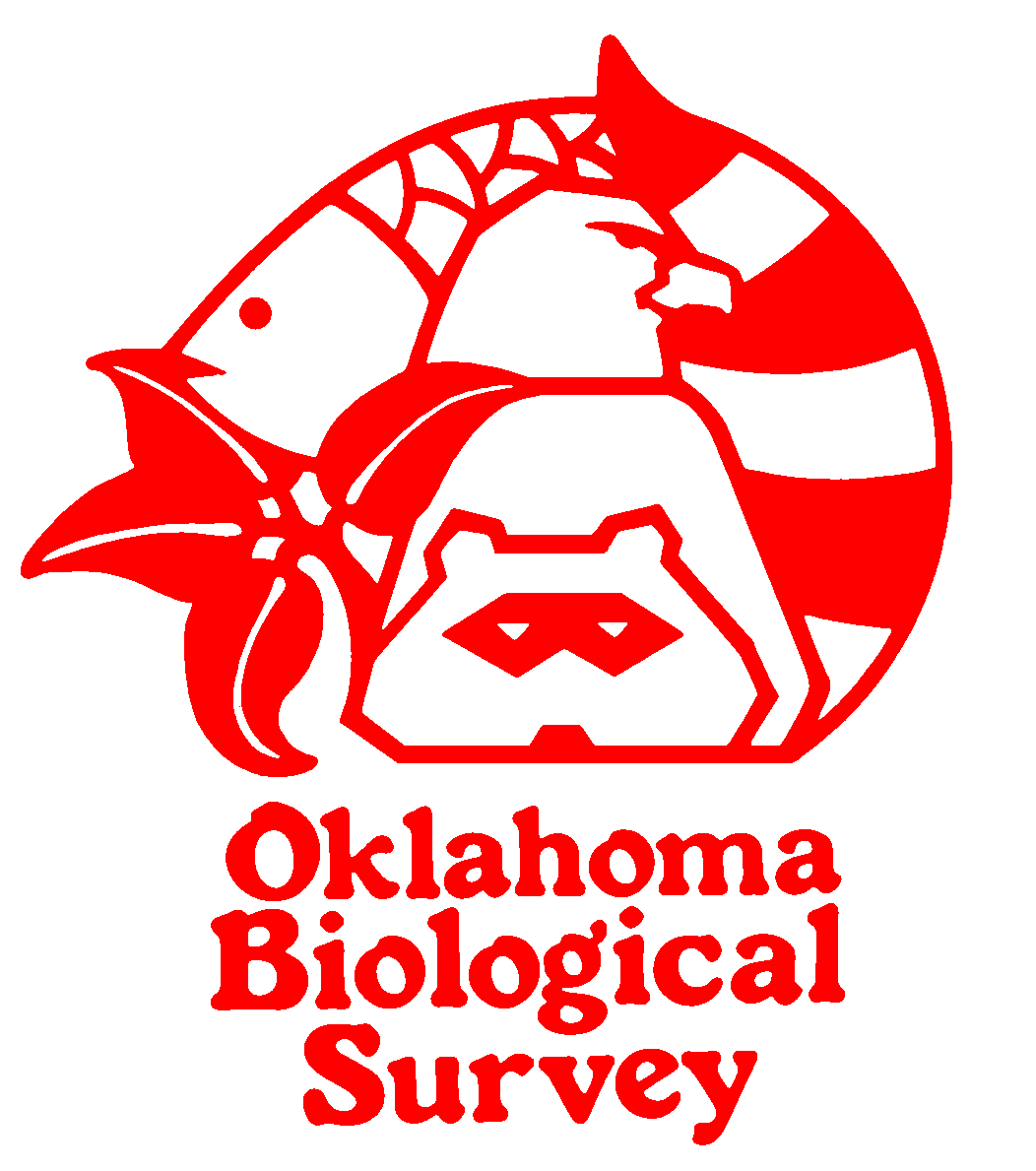

Tree to 25 m (80 ft) tall and 60 cm (2 ft) diameter. Bark reddish-brown to gray, thick, rough, divided into rectangular or irregular blocks and ridges. Twigs thin, red-brown, usually hairy. Buds red-brown, blunt, egg-shaped. Leaves alternate, often crowded on spur shoots, elliptic to oblong, 5-13 cm (2-5 in) long and 2.5-7.5 cm (1-3 in) wide, entire, shiny glabrous green above, paler and usually hairy below, turning bright red or sometimes purple in Fall. Flowers small, green, on long stalks at base of new leaves in early Spring. Fruits drupes, 1-3 at end of long stalks, blue-black, ripening in Fall.
Distribution: About the southeastern third of the U. S.
Habitat: Often abundant in floodplain forests and common to infrequent in upland forests.
NWI status: FAC
Comment: Black gum is widely planted in the South as a shade tree. The wood is used for furniture, boxes and crates, railroad ties, and pulpwood. Nyssa means "water nymph"; sylvatica refers to the wooded habitat.
Distribution in Oklahoma: 
BACK
NEXT
RETURN TO INDEX
Last update: 9/14/99
 Go to Oklahoma Biological Survey Home Page
Go to Oklahoma Biological Survey Home Page
 Disclaimer
Disclaimer